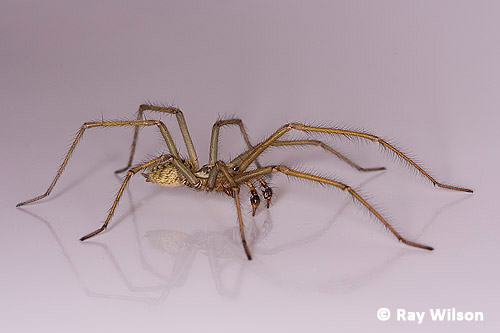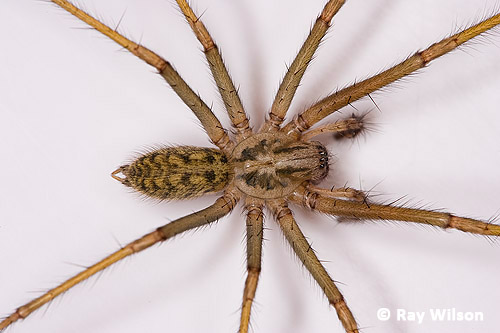

The large (by british standards) Teganaria gigantea is a very common, cosmopolitan species which predominantly lives in houses. During most of the year their presence in your home is likely to go completely unnoticed as they spend their time in their sheet web in dark, undisturbed areas, such as behind cupboards, under the bath or under the floorboards. It is only in the autumn that they are generally obvious when the males leave their webs and go searching for females.

There are two common and widespread Large House Spider species in Britain: T. gigantea and T. saeva. Both are very similar and can only be separated by microscopic examination of either the female epigyne or male palpal organs.

It is a common misconception that the spiders found in your bath, such as the one photographed here, come up through the plug-hole when, in fact, they have almost certainly fallen in during their nocturnal travels and cannot climb back out due to the steep, slippery sides of the bath. House spiders cannot swim and will quickly drown if immersed in water so living in drains is not an option for them.
Despite many people's terror at finding this large, hairy spider in their bath, they are pretty harmless and, out of the hundreds I have handled while rescuing them from my bath over the years, not once has one attempted to bite me.
Ray Wilson owns the copyright of all images on this site.
They may not be used or copied in any form without prior written permission.
raywilsonphotography@googlemail.com